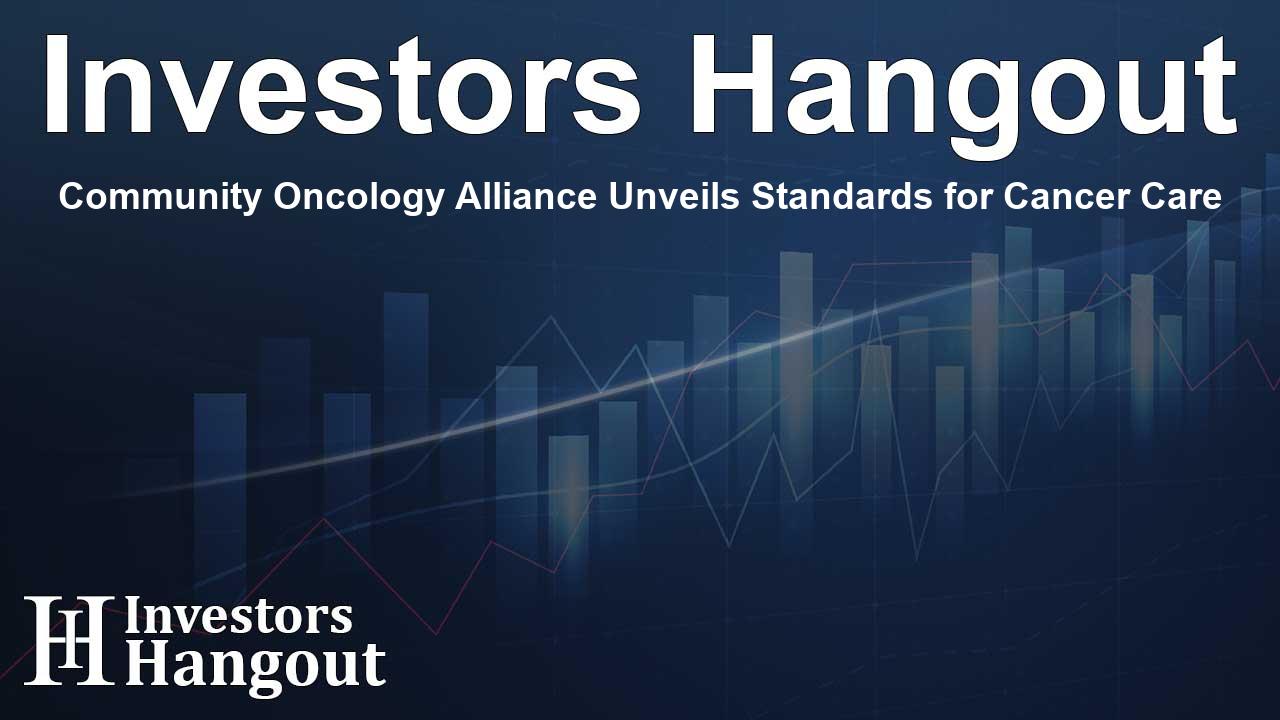Community Oncology Alliance Unveils Standards for Cancer Care

Community Oncology Alliance Unveils Standards for Quality Cancer Care
In a significant move for community oncology, the Community Oncology Alliance (COA) has introduced a set of Quality and Value Standards designed to enhance cancer care. This initiative supports independent oncology practices in assessing their operations and facilitates participation in quality certification programs.
The Importance of Quality and Value Standards
These standards create a practical roadmap for oncology practices, enabling them to engage in meaningful discussions regarding quality cancer care with patients, employers, and payers. The release of these standards comes in response to the growing challenges faced by independent cancer care providers, particularly as cancer treatment costs rise and patient experiences become increasingly complex.
Meeting the Demands of Cancer Care
As patient expectations evolve, oncology practices are under pressure to demonstrate their commitment to high-quality, personalized care. "Those who receive and pay for cancer care want to know that they are getting high-quality, personalized, evidence-based, and value-driven care," stated Miriam Atkins, MD, FACP, president of COA. This call to action is crucial for practices that wish to remain competitive amid a rapidly changing health care landscape.
Key Pillars of the Standards
The COA Quality and Value Standards encompass eight essential pillars aimed at improving patient care and managing treatment costs:
- Engagement and education for patients and caregivers as partners in their cancer journey.
- Access to care teams and support services beyond regular office hours.
- Evidence-based care, second opinions, and information on clinical trials offered to patients.
- Coordinated, integrated, team-based cancer care delivery.
- Commitment to quality improvement and patient satisfaction through ongoing monitoring.
- Support for patients with care planning and legal documentation tailored to their needs.
- Training of care teams in the safe administration of cancer treatments.
- A focus on providing high-value care that reduces overall costs and patient expenses.
Supporting Cancer Care Practices
These standards will serve as a reference for oncology practices assessing their operations and preparing for national certification initiatives. By aligning with prominent quality programs, such as the Enhancing Oncology Model and the National Committee for Quality Assurance, the COA aims to simplify the process of measuring quality within cancer care.
The Challenge of Defining Quality in Cancer Care
Despite various initiatives aimed at measuring quality, there remains considerable confusion surrounding what constitutes quality cancer care. Ted Okon, executive director of COA, points out the necessity of creating a cohesive definition of quality in cancer treatment. The COA Standards aim to provide clarity and support practices in both evaluating their performance and demonstrating their commitment to high-quality care.
Accessibility of the Standards
Importantly, the COA Quality and Value Standards are freely accessible to all oncology practices and stakeholders, ensuring that anyone can leverage these guidelines to improve patient care. The standards will undergo periodic reviews by an expert panel, ensuring they remain relevant and effective in addressing the ever-evolving landscape of cancer treatment.
Frequently Asked Questions
What are the COA Quality and Value Standards?
The COA Quality and Value Standards are guidelines designed to help community oncology practices enhance the quality and value of their cancer care services.
How can oncology practices benefit from these standards?
Practices can use the standards to assess their operations, prepare for certification programs, and effectively communicate their commitment to quality care with stakeholders.
What are the eight pillars of the COA standards?
The pillars focus on patient engagement, access to care, evidence-based practices, coordination, quality improvement, advanced care planning, safety in treatment administration, and value-driven care.
Are the standards accessible to all practices?
Yes, the standards are free for all oncology practices and stakeholders to access and utilize in their quality improvement efforts.
How often will the standards be reviewed?
The COA will review the standards every three years with input from an expert panel to ensure they meet current challenges in cancer care.
About Investors Hangout
Investors Hangout is a leading online stock forum for financial discussion and learning, offering a wide range of free tools and resources. It draws in traders of all levels, who exchange market knowledge, investigate trading tactics, and keep an eye on industry developments in real time. Featuring financial articles, stock message boards, quotes, charts, company profiles, and live news updates. Through cooperative learning and a wealth of informational resources, it helps users from novices creating their first portfolios to experts honing their techniques. Join Investors Hangout today: https://investorshangout.com/
Disclaimer: The content of this article is solely for general informational purposes only; it does not represent legal, financial, or investment advice. Investors Hangout does not offer financial advice; the author is not a licensed financial advisor. Consult a qualified advisor before making any financial or investment decisions based on this article. The author's interpretation of publicly available data shapes the opinions presented here; as a result, they should not be taken as advice to purchase, sell, or hold any securities mentioned or any other investments. The author does not guarantee the accuracy, completeness, or timeliness of any material, providing it "as is." Information and market conditions may change; past performance is not indicative of future outcomes. If any of the material offered here is inaccurate, please contact us for corrections.